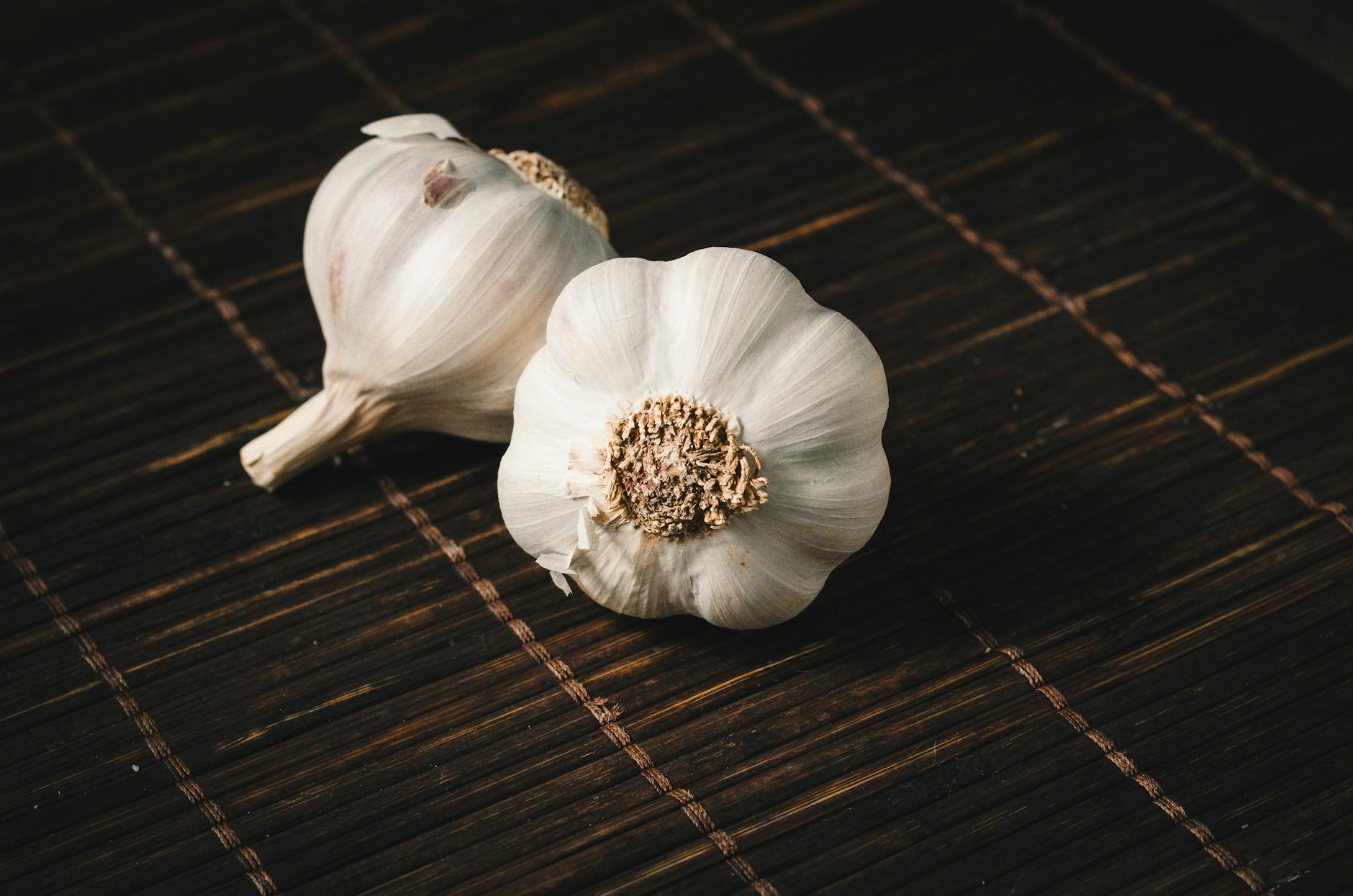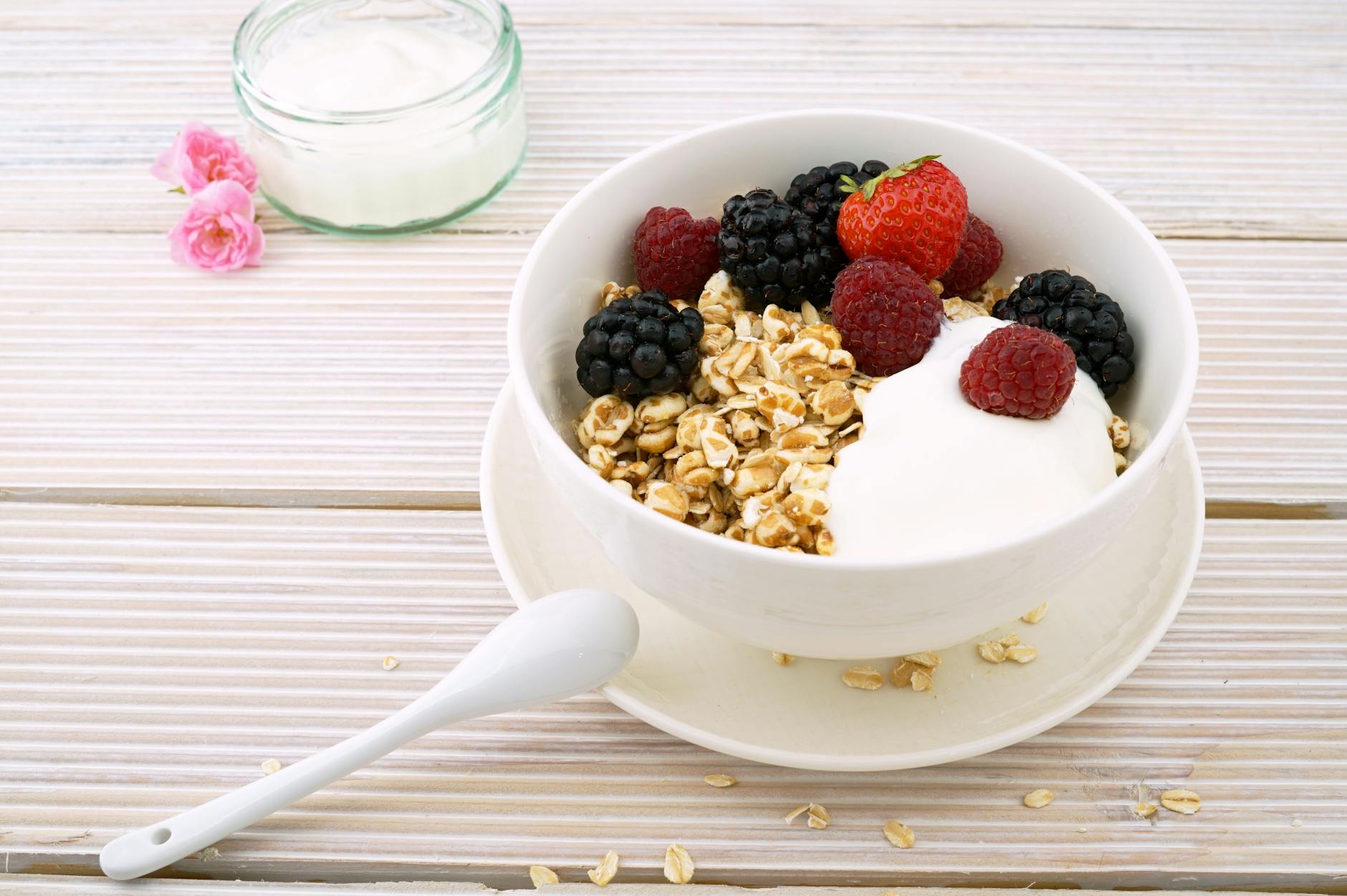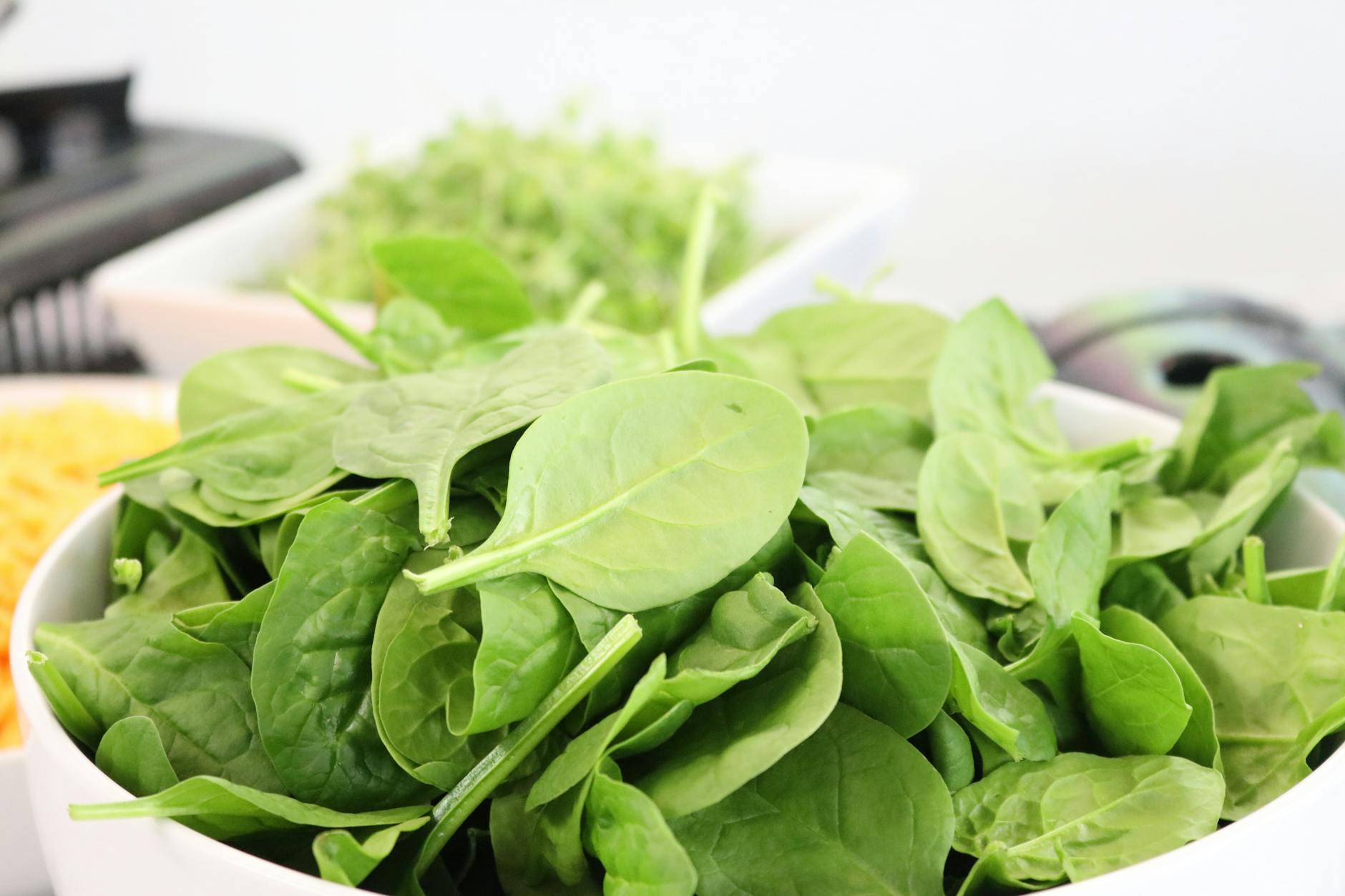
Are you tired of catching every cold and flu that comes your way? 🤧 It’s time to give your immune system the boost it needs! Your body’s natural defense mechanism is your first line of protection against harmful pathogens, and what you eat plays a crucial role in keeping it strong.
But with so much conflicting information out there, how do you know which foods are truly effective? 🤔 Don’t worry – we’ve done the research for you. In this blog post, we’ll explore the top 5 immune-boosting superfoods that are not only delicious but also scientifically proven to enhance your body’s ability to fight off infections. From vitamin C powerhouses to nature’s own antibiotic, we’ll uncover the secrets of these nutritional champions and show you how to easily incorporate them into your daily diet.
Get ready to discover the immune-boosting potential of citrus fruits, garlic, yogurt, spinach, and almonds. These five foods are about to become your new best friends in the battle against illness. Let’s dive in and explore how each of these nutritional powerhouses can help you stay healthy and vibrant all year round! 💪🍊🧄🥛🥬🥜
Citrus Fruits: Vitamin C Powerhouses

A. Oranges: The classic immune booster
Oranges are renowned for their high vitamin C content, making them a go-to fruit for immune support. A single medium-sized orange provides about 70 mg of vitamin C, which is nearly 78% of the daily recommended intake. This essential nutrient plays a crucial role in stimulating the production and function of white blood cells, the body’s primary defense against infections.
B. Grapefruits: Low-calorie option for immune support
Grapefruits offer a tangy and refreshing way to boost your immune system while keeping calorie intake in check. Half a medium grapefruit contains about 88% of your daily vitamin C needs, along with other beneficial compounds like lycopene and flavonoids. These antioxidants work synergistically to enhance immune function and protect cells from damage.
C. Lemons: Versatile addition to meals and drinks
Lemons are incredibly versatile and can be easily incorporated into various dishes and beverages. While they may not be consumed whole like oranges, their juice is a concentrated source of vitamin C. Adding lemon to your water or tea not only enhances flavor but also provides a quick immune boost.
Here’s a comparison of vitamin C content in these citrus fruits:
| Fruit | Serving Size | Vitamin C Content |
|---|---|---|
| Orange | 1 medium | 70 mg |
| Grapefruit | 1/2 medium | 88 mg |
| Lemon | 1 fruit | 30-35 mg |
To maximize the benefits of citrus fruits for immune health:
- Consume them fresh for optimal nutrient retention
- Include a variety of citrus fruits in your diet
- Use lemon juice as a natural seasoning to reduce salt intake
- Pair citrus fruits with iron-rich foods to enhance iron absorption
Garlic: Nature’s Antibiotic

Allicin: The key compound for immune health
Garlic’s immune-boosting power comes from allicin, a sulfur-containing compound that forms when garlic is crushed or chopped. Allicin exhibits potent antimicrobial properties, making garlic nature’s antibiotic. This compound helps fight off harmful bacteria, viruses, and fungi, strengthening your body’s natural defenses.
Raw vs. cooked: Maximizing garlic’s benefits
To reap the most benefits from garlic, it’s best consumed raw. Cooking can reduce allicin content, but doesn’t eliminate its benefits entirely. Here’s a comparison:
| Preparation | Allicin Content | Taste | Versatility |
|---|---|---|---|
| Raw | Highest | Strong | Limited |
| Cooked | Reduced | Mild | Versatile |
Easy ways to incorporate garlic into your diet
- Add minced raw garlic to salad dressings
- Mix crushed garlic with olive oil for a bread dip
- Blend raw garlic into smoothies (start with small amounts)
- Roast whole garlic cloves for a milder flavor
- Add garlic to soups and stews during the last few minutes of cooking
Potential side effects and precautions
While garlic is generally safe, some people may experience:
- Bad breath
- Digestive discomfort
- Increased bleeding risk (if taking blood thinners)
Start with small amounts and consult your doctor if you have any concerns. Now that we’ve explored garlic’s immune-boosting properties, let’s look at another powerful probiotic defender for your immune system.
Yogurt: Probiotic Defender

The gut-immune system connection
The relationship between gut health and immune function is intricate and vital. A healthy gut microbiome plays a crucial role in supporting our immune system, acting as a first line of defense against pathogens. Probiotics, found abundantly in yogurt, contribute to this symbiotic relationship by:
- Enhancing barrier function
- Producing antimicrobial compounds
- Modulating immune responses
- Competing with harmful bacteria
| Gut Health Factor | Impact on Immune System |
|---|---|
| Diverse microbiome | Improved immune regulation |
| Probiotic balance | Enhanced pathogen resistance |
| Gut barrier integrity | Reduced inflammation |
Choosing the right yogurt for immune support
When selecting yogurt for immune support, consider the following factors:
- Live cultures: Look for “live and active cultures” on the label
- Probiotic strains: Seek varieties with multiple strains like Lactobacillus and Bifidobacterium
- Sugar content: Opt for low-sugar or plain varieties
- Fat content: Choose based on your dietary needs
Dairy-free alternatives for lactose intolerant individuals
For those who can’t consume dairy, several probiotic-rich alternatives exist:
- Coconut yogurt
- Almond yogurt
- Soy yogurt
- Cashew yogurt
These options provide similar probiotic benefits without lactose. When choosing dairy-free alternatives, ensure they contain live cultures and minimal added sugars.
Now that we’ve explored the power of yogurt as a probiotic defender, let’s move on to another immune-boosting superfood: spinach.
Spinach: Nutrient-Dense Leafy Green

Rich in antioxidants and beta carotene
Spinach is a nutritional powerhouse, packed with antioxidants and beta carotene that play crucial roles in supporting your immune system. These compounds help protect your body from harmful free radicals and oxidative stress, which can weaken your immune defenses.
- Key antioxidants in spinach:
- Vitamin C
- Vitamin E
- Flavonoids
- Carotenoids
Beta carotene, a precursor to vitamin A, is particularly abundant in spinach. It supports the production and function of immune cells, enhancing your body’s ability to fight off infections.
Cooking methods to preserve nutrients
To maximize the immune-boosting benefits of spinach, it’s essential to use cooking methods that preserve its nutrients. Here’s a comparison of different cooking techniques:
| Cooking Method | Nutrient Retention | Taste | Texture |
|---|---|---|---|
| Raw | Highest | Mild | Crisp |
| Steaming | High | Mild | Tender |
| Sautéing | Moderate | Rich | Wilted |
| Boiling | Low | Mild | Soft |
Steaming or quick sautéing are recommended methods to retain most of the nutrients while enhancing flavor and digestibility.
Combining spinach with other immune-boosting foods
To maximize the immune-boosting potential of your meals, consider pairing spinach with other nutrient-rich foods:
- Add citrus fruits to spinach salads for a vitamin C boost
- Incorporate garlic in spinach stir-fries for added antimicrobial benefits
- Top steamed spinach with sliced almonds for extra vitamin E
These combinations not only enhance flavor but also create a synergistic effect, amplifying the overall immune-supporting properties of your meals. With these nutrient-dense pairings, you’ll be well on your way to strengthening your body’s natural defenses against illness.
Almonds: Vitamin E for Immune Health

The role of vitamin E in immune function
Vitamin E is a powerful antioxidant that plays a crucial role in supporting the immune system. It helps protect cells from damage caused by free radicals and enhances the body’s ability to fight off infections. Here’s a breakdown of its key functions:
| Function | Description |
|---|---|
| Antioxidant | Neutralizes harmful free radicals |
| T-cell support | Enhances the production and function of T-cells |
| Anti-inflammatory | Reduces inflammation in the body |
| Cell membrane protection | Maintains the integrity of cell membranes |
Recommended daily intake for optimal benefits
The recommended daily intake of vitamin E varies based on age and gender:
- Adults (19+ years): 15 mg
- Pregnant women: 15 mg
- Breastfeeding women: 19 mg
A single ounce (28 grams) of almonds provides about 7.3 mg of vitamin E, making them an excellent source to meet your daily needs.
Creative ways to add almonds to your diet
Incorporating almonds into your diet can be both delicious and nutritious. Try these ideas:
- Sprinkle sliced almonds on salads or yogurt
- Blend almond butter into smoothies
- Use almond flour in baking recipes
- Make homemade almond milk
- Create a trail mix with almonds and dried fruits
Other nut options for variety
While almonds are excellent for immune health, other nuts also offer similar benefits:
- Hazelnuts
- Sunflower seeds
- Peanuts
- Brazil nuts
These alternatives provide variety and additional nutrients to support your immune system. Remember to consume nuts in moderation due to their high calorie content. Incorporating a mix of these nuts into your diet can help ensure you’re getting a wide range of immune-boosting nutrients.

Incorporating these five immune-boosting foods into your daily diet can significantly enhance your body’s natural defense mechanisms. Citrus fruits provide essential vitamin C, while garlic acts as a natural antibiotic. Yogurt supplies beneficial probiotics, spinach offers a variety of nutrients, and almonds deliver immune-supporting vitamin E.
Remember, a strong immune system is your best defense against illness. By making conscious choices to include these foods in your meals, you’re taking proactive steps towards better health. Start small by adding one or two of these foods to your diet and gradually increase your intake. Your immune system will thank you for it!
